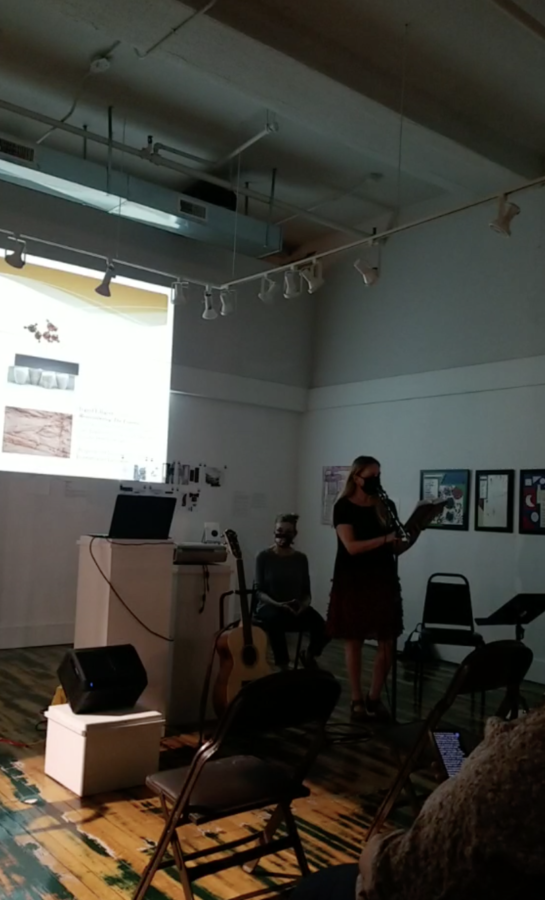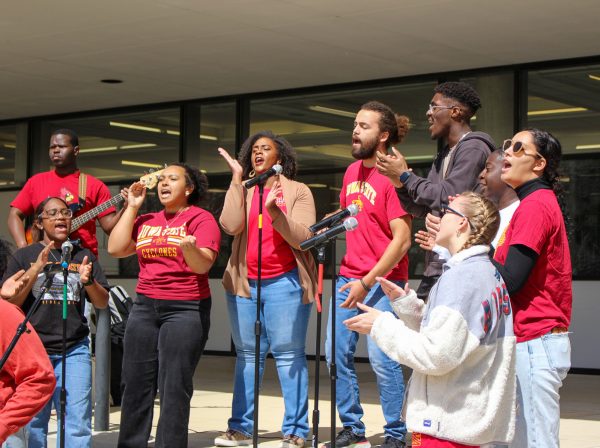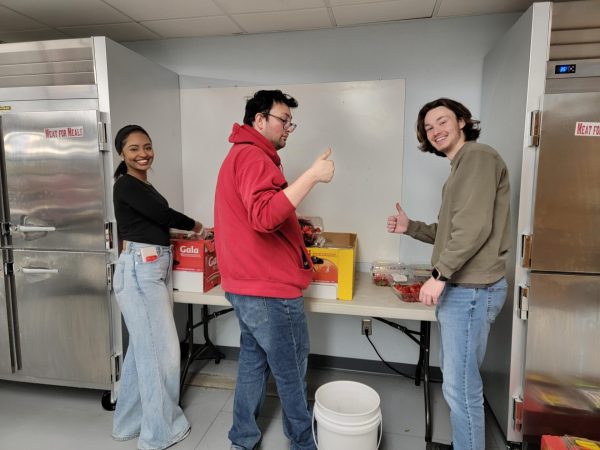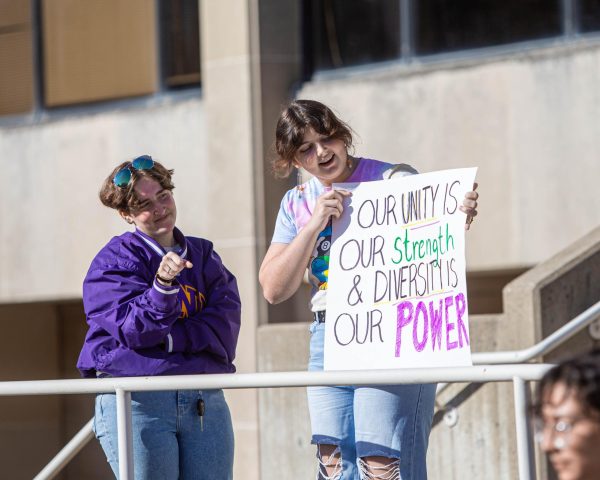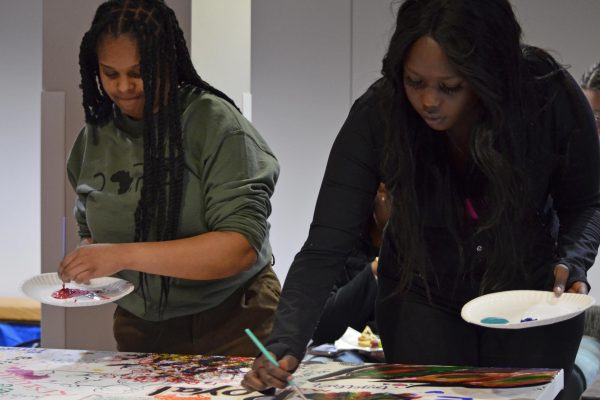Octagon Center for the Arts hosts professors for gallery talk
September 1, 2021
Wednesday night, the Octagon Center for the Arts hosted two Iowa State faculty members for a gallery talk highlighting their work.
Debra Marquart, English professor and Iowa’s Poet Laureate, and Ingrid Lilligren, an art and visual culture professor, presented their respective art forms and art intersections at the event. The two women have a long history of friendship.
On Monday, Marquart spoke about her new book at Parks Library’s Monday Monologues event.
Lilligren creates her art pieces using fire and Marquart often writes about a fire that destroyed her band’s equipment truck in 1980, resulting in a loss of $60,000.
Some recent artwork that Lilligren showed uses braille as a means to explore social, cultural and political blindness.
“I don’t think of myself as a writer, I am a visual assembler,” Lilligren said. On one of her pieces, she has fragments from poems out of Marquart’s book, “Small Buried Things,” written in braille.
Marquart read one of her poems from the book, called “Frack.” “Small Buried Things” is a collection of poems discussing the effects of the oil boom in her home state of North Dakota.
“Thirty thousand new workers converging on small towns,” Marquart read. “Mostly good people, some desperate, some dangerous. The talk is about the rise in crime, robberies, stabbings, domestic disputes.”
The poem continued to talk about a woman, a math teacher, taken from the side of the road and strangled.
“So the talk centers on the observable, damaged infrastructure, eyesore roads where there were no roads before. Old highways, pitted full of potholes, undriveable, dangerous. The speed of the oil and water trucks on the public roads, the rise in highway fatalities,” she said.
The pair’s newest project, which was also highlighted at the event, is a project focusing on the state of the environment and the impact of resource extraction, such as the fracking mentioned in the poem, on the planet.
Many of Lilligren’s works of art are engraved with Marquart’s words. Lilligren’s showing of her work was punctuated by poems written by Marquart.
Marquart also talked about the fire that changed her life.
“After the fire, I found myself stalled out in Fargo, which is not a fate worse than death, but close,” she read.
At the end of the event, the women left with a shared hug.
More information about Marquart’s writing and Lilligren’s art can be found on their websites.

